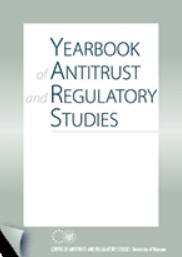Institutional Design, Efficiency and Due Process in Competition Enforcement: Lessons from Slovenia and Serbia
Institutional Design, Efficiency and Due Process in Competition Enforcement: Lessons from Slovenia and Serbia
Author(s): Veljko Smiljanić, Kevin RihtarSubject(s): Criminal Law, Human Rights and Humanitarian Law, Law on Economics, EU-Legislation, Comparative Law, Administrative Law
Published by: Wydawnictwo Naukowe Wydziału Zarządzania Uniwersytetu Warszawskiego
Keywords: antitrust; competition law; Central and Eastern Europe; efficiency; competition enforcement systems; judicial review; Slovenia; Serbia;
Summary/Abstract: The article compares the institutional designs and historic legacy of the Slovenian and Serbian competition enforcement framework, and discusses the advantages and drawbacks of each model. Slovenia implemented a mixed model, where the competition enforcement procedure is divided into functionally separate investigation and misdemeanour administrative procedures for the imposition of sanctions. The Slovenian model has generally been perceived as inefficient, with specific difficulties arising from the unclear relationship between the administrative and the misdemeanour procedures. On the other hand, Serbia significantly changed its institutional design in 2009 from its Austrian-inspired roots to a single administrative procedure. The new system appears to have been more effective, but strong judicial safeguards are necessary. The Authors further review the matter from a national and international point of view, considering the ECN+ Directive and the case-law of the Court of Justice of the European Union and European Court of Human Rights.
Journal: Yearbook of Antitrust and Regulatory Studies (YARS)
- Issue Year: 13/2020
- Issue No: 22
- Page Range: 67-87
- Page Count: 21
- Language: English

